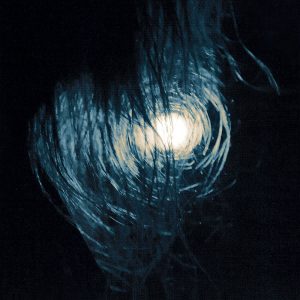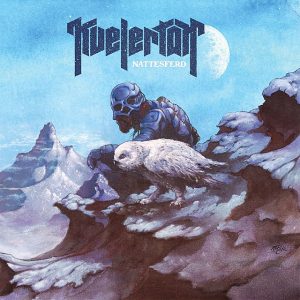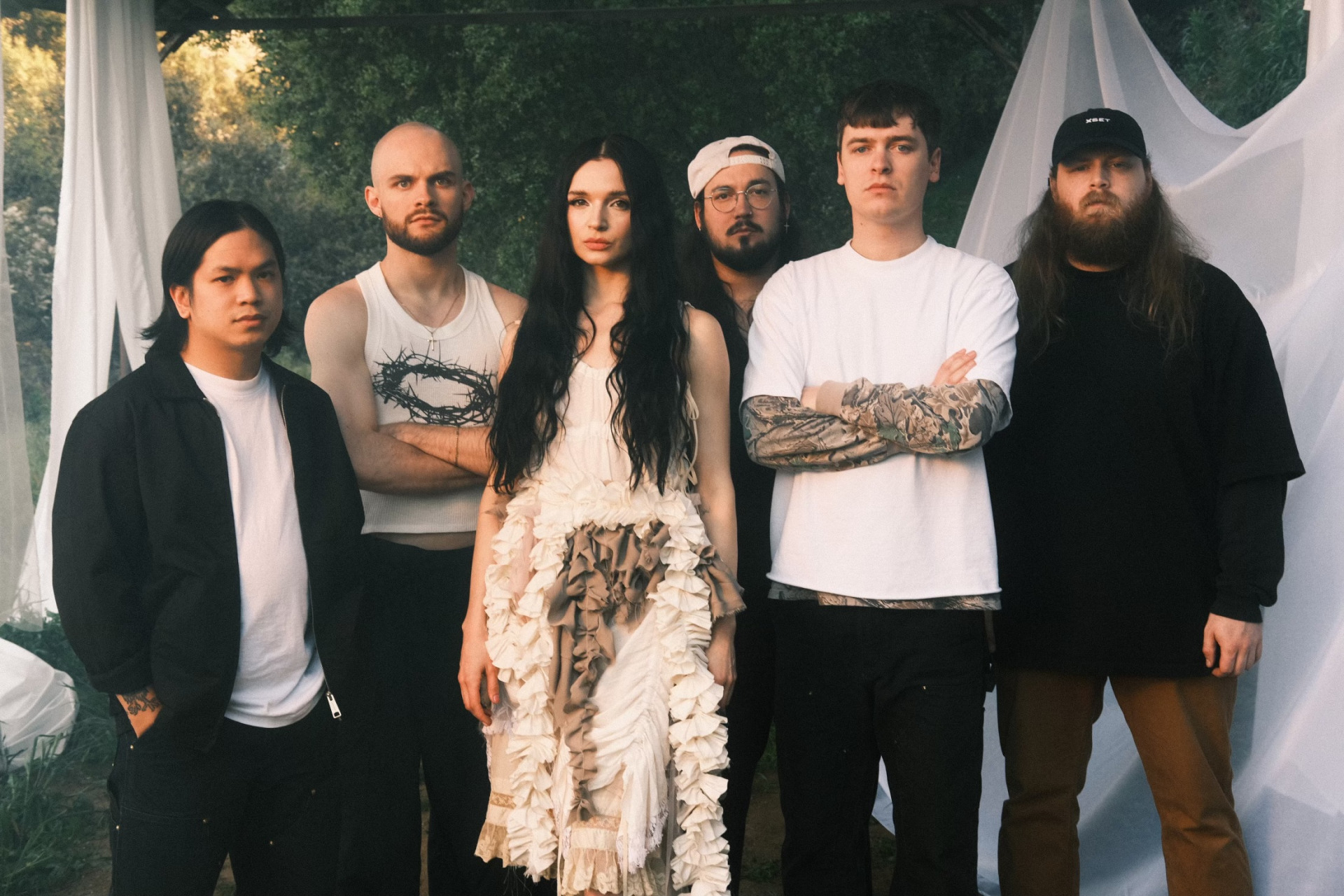
Top Albums Of 2016, by Ian Cory

…
It will be hard to think of 2016 in terms other than loss. As the year wore on it seemed like we were locked in an endless parade of stars bowing out and passing on. No matter what kind of music you enjoy, chances are your record collection (physical, digital or otherwise) felt haunted this year. Not only did older records by countless musicians take on a somber weight, but artists like David Bowie and Leonard Cohen made a point of leaving behind a final musical statement, a tip of the hat on the way out the door.
Pop culture is in the midst of a vast generation shift. The passing of a lifer like Lemmy, or a singular personality like Prince can be destabilizing. Their mythic status makes it difficult to orient yourself in pop culture in their absence. True north has vanished. We are lost at sea.
If there is no way to fill the holes these artists have left behind, the most I can hope for is that the subsequent generation can leave holes of their own.
Maybe this is why I’m starting to be more grateful for the metal bands that have stuck around. By this point most of the metal bands that I grew up on in high school have settled into a comfortable middle age. It can be easy to take a record like Meshuggah’s The Violent Sleep of Reason or Neurosis’s Fires Within Fires for granted. By now I know what to expect from Devin Townsend or Russian Circles. Even if none of these records broke significantly new ground for their creators, I’m happy to have these established acts around, none more so than Metallica.
Besides, there are plenty of other bands putting out interesting work. Bands across a wide range of styles like Wode, Blood Incantation, Spinebreaker, Subrosa, and Latitudes all put out high quality albums in 2016. Even if it seemed like we could barely keep our head above water in the deluge of post-Sunbather shimmery black metal the genre has just as much strength in its breadth as it does its depth.
Still, the death of Prince and Bowie has left me with a nagging thought. There has never been a higher premium on artists who truly forge their own path. Both treated music history as a buffet table, moving across genres and styles effortlessly, without ever sacrificing their point of view. I hope that the next generation of musicians will have as voracious an appetite. In a year where the most vile and hateful parts of American culture have been bolstered and legitimized, this need for trailblazers of self-expression is low on the list of priorities. But christ, is it too much to ask?
Trailblazers don’t emerge from the ether fully formed. They need to be fostered and encouraged by their community. For those ostracized and denied entry to the mainstream, that community often comes in the form of DIY spaces, where marginalized artists can express themselves fully and without fear. This is why the Ghost Ship fire in Oakland is so tragic. Beyond the loss of a space for challenging and experimental art, the fire resulted in the lose of lives, of community. If you can, I encourage you to donate to Ghost Ship here. If you cannot, that’s fine. The point is that these kinds of spaces are only going to become more valuable in the next few years. Metal culture often feels torn between fierce individualism and a “brothers-in-arms” communal spirit. Going forward, I’m choosing the latter.
…
10 Non-Metal Favs (a balanced diet is important!):
10. Noname – Telefone (self-released, USA)
9. Moses Sumney – Lamentations (self-released, USA)
8. Danny Brown – Atrocity Exhibition (Warp, USA)
7. Angel Olsen – My Woman (Jagjaguwar, USA)
6. Savages– Adore (Matador, England)
5. The Range – Potential (Domino, USA)
4. Tim Hecker – Love Streams (4AD, Canada)
3. 21 Savage – Savage Mode (Self-Released, USA)
2. Marissa Nadler – Strangers (Sacred Bones, USA)
1. Frank Ocean – Blonde (Boy’s Don’t Cry, USA)
…

I have a beef with psychedelia: too much sun. Too many flowers. Too many bright colors. Psychedelic music is devoted almost universally to warm weather, as if a there’s nothing trippy about a snowstorm, or a forest of leafless trees. Cold psych is a tiny market and Finland’s Oranssi Pazuzu have cornered the hell out of it. Värähtelijä doesn’t sting in the same way that most black metal does. By metal standards the record is hardly harsh. Instead of breaking down walls Oranssi Pazuzu slowly dissolve them. More heady than heavy, Värähtelijä needs a few songs to build up steam, but once the band roll into the gooey center of the record it takes on a life of its own. Don’t worry, it won’t last forever.
Listen Here.
…

The reigning kings of throwing a third on it. Kvelertak have never met a riff that they couldn’t be improved with a high gain harmonized lead. By now you can see it coming a mile away any time Kvelertak settle into a groove. Four repetitions and then the harmony. Maybe they’re feeling frisky and will throw a second one on just for the fuck of it. And yet despite years of listening to metal and two previous albums worth of Kvelertak pulling this damn trick, it still works every time. I can’t help but grinning like a maniac. Kvelertak make heavy metal sound like a party by focusing on the most pleasurable parts of the genre. Unsurprisingly, this often leads them to occupy a space where extreme metal crosses back over to the genre’s roots in hard rock. Nattesferd is the closest they’ve come yet to becoming a full on bar rock band. The stakes don’t feel particularly high, but they don’t have to.
Listen Here.
…
Funny how life works out. I only stumbled across Portugal’s Sinistro at Roadburn Fest this year because the line to see Oranssi Pazuzu was too damn long, and yet here Sinistro are sitting two spots above them on my year end list. Semente is even better than their colossal live set suggested. Sinistro see no animosity between tunefulness and detuned guitars. At their core, the songs on Semente could be played on piano or acoustic guitar, which means that their heaviness is a conscious choice, one that is carefully applied at just the right moments. This kind of focus on capital S Songwriting is something that even the best post-metal acts tend to side step, so Sinistro are operating in a lane of their own.
Listen Here.
…
Wormrot made two significant changes on Voices, their long awaited return after charming the hell out of metalheads with the first two full length albums. The first was replacing Fitri, who had played drums on Abuse and Dirge with Vijesh Ghariwala. There was very little wrong with Fitri, his playing was the perfect compliment to Wormrot’s blunt songwriting. Ghariwala is just as fleet as the shoes he’s filling, but he’s equally capable of hitting for power. Wormrot have always been exciting, but Ghariwala’s precision gives them a fresh edge.
The second change is that Wormrot have unexpectedly let some melody sneak into the margins of their songwriting. Their primary mode is still to take a battering ram straight to your skull, but Wormrot have given that battering ram a new paint job. Either of these changes would have been enough to make Voices an improvement for the band. Taken in tandem, these steps become a single leap. Wormrot aren’t just charming, they’re killer.
Listen Here.
…
Trap Them make me want to eat barbed wire and shoot lava out of my eyes. They make me want to uppercut garbage trucks. They make me want to deadlift the Trump Tower and throw it into orbit. Trap Them make me want to receive an alley-oop from Satan and dunk on the face of God. When “Malengines Here, Where They Should Be” kicks in I start doing pushups through the earth. When I added Crown Feral to my Spotify collection I blacked out and woke up with a face tattoo and a stomach full of gasoline.
Trap Them are experts at appealing to the lizard brain. They’ve developed a surgical precision at cutting through the rational and the civilized. They will club your Jiminy Cricket to death with a spiked bat. Their last record eased off the gas a bit, but Crown Feral is a nonstop push into the red.
Listen Here
…
As many of my colleagues have noted in their own lists, 2016 was a big year for outer space. My personal favorite take on the subject comes from a transcontinental collaboration between a rejuvenated Cult Of Luna and singer Julie Christmas. It’s an interesting pairing, Christmas is best when she’s given free reign to color outside of the lines while Cult Of Luna are a series of straight lines personified. Neither change their approach to accommodate the other, but it turns out neither needed to. Christmas gives the machinery behind her a human voice that had been missing from the last few Cult Of Luna records. In return, Cult Of Luna have created a densely layered and nuanced record that dwarfs the stripped down arrangements of Made Out Of Babies or Battle Of Mice.
Listen Here
…
Wouldst thou like to riff deliciously?
Listen Here.
…
The easy way in on Kodama is to think of it as a comeback record. It is certainly swings the pendulum back to the heavier side after the dreamy sigh of 2014’s Shelter. But while Kodama brings back the blast beats and harsh screams that kept Alcest black metal adjacent, those darker hues don’t change the picture that Alcest are painting. As always, the thing that Neige excels at is depicting a sense of wonder and overwhelming beauty. Sometimes that requires guest spots from members of Slowdive, other times it requires kicking on the distortion. Praising Kodama for being a metal record is valid, because it’s a great metal record, but its greatness isn’t contingent on its metal-ness. Alcest are aiming to break your heart, not your neck.
Listen Here.
…
This may come across as very backhanded, but I had no idea Oathbreaker were capable of this. Their previous two albums were smart, effective hardcore, the kind of music that makes it into a gym playlist but doesn’t register much beyond an adrenaline rush. Rheia on the other hand is music to listen to for the gym of your soul. Rheia is a piece of emotional archeology. Using black metal and shoegaze as their pickaxe and shovel, Oathbreaker have dug up trauma and fashioned it into gold. The record is a demanding listen, not because it obtuse techniques or takes multiple listens to unravel its complexities. On the contrary, Rheia is immediate and melodious. What makes the record challenging is that it doesn’t hide from you, it stares you right in the eye and dares you to look away. It is a raw wound.
Listen Here.
…
The Dillinger Escape Plan never made a perfect album. Each of their records struggled getting the basic alchemy of their sound to fit just right. The parts didn’t always fit right. But that incongruity was always part of the band’s charm. One of the recurring themes in their final press tour has been that any of their records could have been their last. Listening back to their discography, that sentiment doesn’t seem hyperbolic. You can hear the pieces grinding against each other, struggling to fit into a cohesive whole. That tension is half the fun. Like a beardo with a GoPro, The Dillinger Escape Plan were always one step away from falling into the abyss but treated the ledge like a pullup bar. That they’ve decided to let go and plummet now is a shame, but holy shit is the fall glorious.
Ever since singer Greg Puciato joined the band in 2004, The Dillinger Escape Plan have had troubling figuring out the exact proportions of how melodic, how technical, how jazzy, or how electronic they should be. At their best, they were all three. At their best they were only themselves.
It’s hard to call Dissociation the best Dillinger record, especially considering the long shadow that both Calculating Infinity and Miss Machine cast over heavy music in the last decade plus, but it does feel like the most complete album from the band. Here, all of the gears that couldn’t fit together are all in sync. The band’s rigorous technical workouts have never felt so compact, their melodic hooks never better timed and their genre bending weirdness never more appropriate. The struggle isn’t audible the way it has been for the last decade, instead Dissociation is fluid. Puciato and Weinman, one of the great frontman/guitarist duos of modern rock, are synced up and settled into their dynamic. They might not sound happy, with The Dillinger Escape Plan the mood is always clenched teeth and bloodied knuckles, but they finally sound free.
Listen Here.
…










